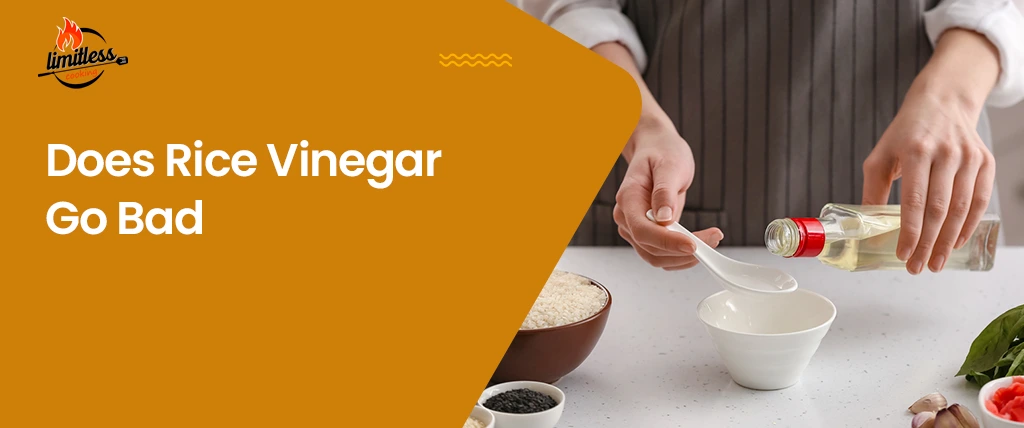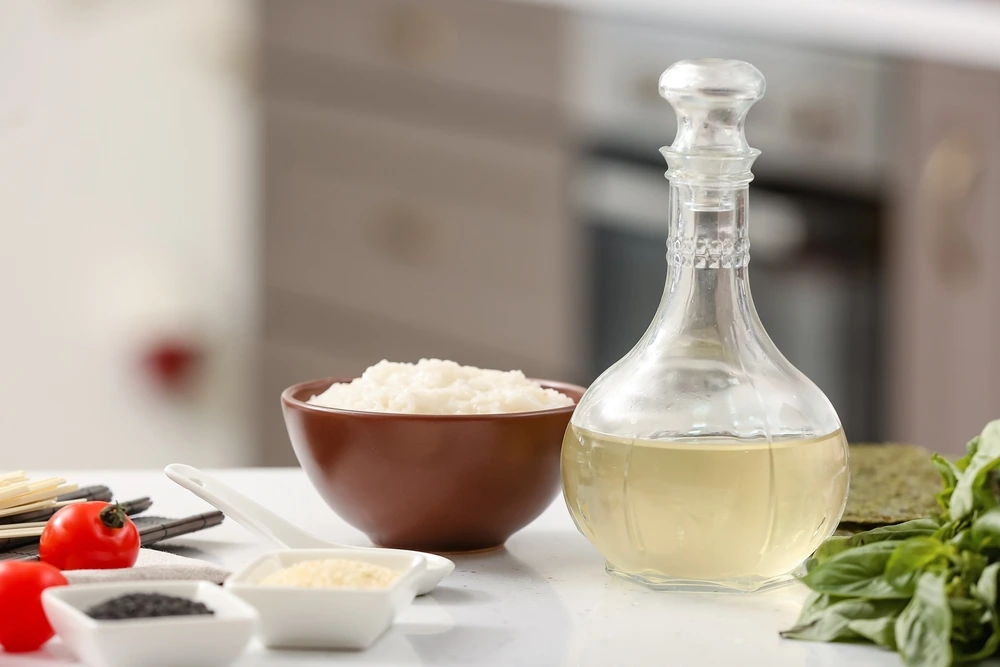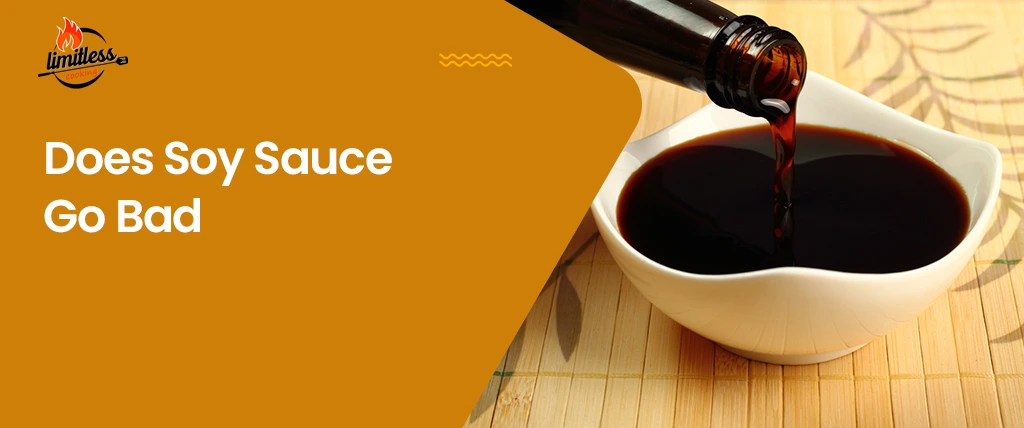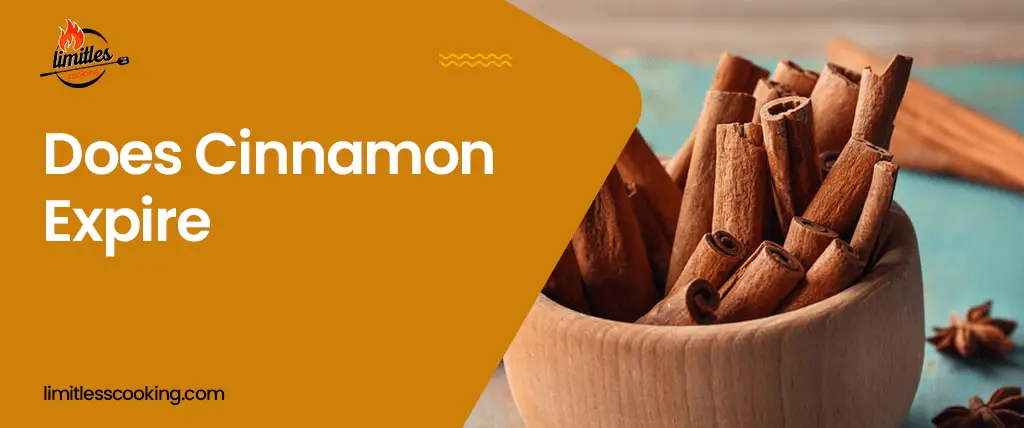Does Rice Vinegar Go Bad? Spoilage Signs and How to Store

Rice vinegar is a popular condiment in Asian dishes like sushi, chicken, marinades, sauces, etc. There is no doubt that many of us bought one because a recipe needed it.
Now, unlike vinegar’s other varieties, like apple cider or balsamic vinegar, rice vinegar has stayed in our pantry without our notice for a long time. After rediscovering the bottle, you notice the product has expired and think, “Does rice vinegar go bad? Should I use it?”
We know that vinegar doesn’t go bad, but confusion can happen because a product has expired. That is why we are here to clear your confusion through this article!
How to Tell If Rice Vinegar Is Bad?
Rice vinegar is made from fermented rice and has a mild taste. Mainly, it is used in cooking to bring acidity to the dish and cook it quicker. It will come in handy whenever you are going to make Asian cuisine. So, if you have a bottle of rice vinegar, ensure it has stayed good.
Signs of Rice Vinegar Gone Rancid:
Figuring out if your rice vinegar is spoiled can take time and effort. Still, after its expiry date, it will have some differences from its original taste, color, and smell.
However, rice vinegar won’t be moldy like other food because of its acidity. The acidity can decrease over time, and then you will see molding, which will take many years. To help you out, here are some signs of spoiled rice vinegar you should look out for before consumption.
1. Change of Flavor
Usually, rice vinegar has a sour and sweet flavor which is powerful and can provide your food with great flavors. However, spoiled rice vinegar will have a more bitter taste, changing your food’s taste to be bitter and less zingy. If you notice this change in your vinegar, it’s time to discard that old bottle and get a new one.
2. Smells Funny
Although vinegar varieties don’t have a distinct smell, rice vinegar has a pleasant scent. So, take a good whiff of it before adding it to anything, and if it smells rotten or weird, your rice vinegar is spoiled.
3. Change in Color
Rice vinegar has a natural pale yellow color, but the color can also differ between brands. The change in color or noticing any cloudiness is your number one sign that the rice vinegar has spoiled.
However, color can also change over time, indicating that it may be past its expiry date. But expired rice vinegar can still be used for food because it will retain the original flavor.
To identify the difference, you must note how the rice vinegar looked when you first bought it. Take a picture to note the color better. Later on, if you notice your rice vinegar becoming dark and cloudy, match it with the picture. Then if it’s spoiled, throw it out because your rice vinegar has lost its flavor.
4. Past the Expiry Date
You can use rice vinegar even after three years of its expiry date. However, if you bought your rice vinegar decades ago, we think it is not good to consume. Even if you see no signs of spoilage, it is better to throw it out to avoid getting sick.
What is the Shelf Life of Rice Vinegar?
Rice vinegar doesn’t spoil quickly, and its shelf life can be up to 5 years if stored properly. But your rice vinegar will only be able to hold onto its flavor for 2 to 3 years, but you will still notice slight changes.
Moreover, did you know rice vinegar has the shortest shelf life among the different varieties? It is because rice vinegar has a higher pH level than other vinegar.
Does Rice Vinegar Need to be Refrigerated?
Rice vinegar doesn’t need to be refrigerated; however, if you want it to last longer, you can keep it in the fridge. Some brands of rice vinegar will last for 3 years maximum, whereas others may last for 8 or even 10 years.
However, using your rice vinegar before its best-by date is better. Because if you didn’t know, rice vinegar creates peroxides that are very toxic to consume. So, buy it in smaller batches than a large jar if you don’t use it much.
How Long Does Rice Vinegar Last in Fridge?
As you already know, rice vinegar lasts a long time in the fridge; however, refrigeration is unnecessary. So, here is a small chart briefing the shelf life of rice vinegar so that you can decide for yourself.
| Type of Rice Vinegar | Shelf Life in Pantry | Shelf Life in the Fridge |
|---|---|---|
| Opened Rice Vinegar | 2 to 3 years | 4 to 6 years |
| Unopened Rice Vinegar | 5 to 7 years | 8 to 12 years |
Ways of Storing Rice Vinegar Properly
You can store rice vinegar like any other vinegar, that is, in the pantry, the kitchen cabinet, or the refrigerator. But it must be a cool, dry, and dark place; otherwise, the product may get spoiled fast.

Here are some tips to help you store your rice vinegar so you can use it longer without any problem.
● Look for a cold, enclosed space that is not near any heat sources, such as a pantry or cupboard.
● Keep the place of your rice vinegar the same. If you decide to keep it in the pantry or the fridge, do not move it from there.
● Many people like to empty products into new jars. Still, if you decide to do it for rice vinegar, it will get contaminated easily. So, keep containers the same.
● Do not keep the rice vinegar on top or near the stove or dishwasher. It must be stored at a constant temperature, away from heat and sunlight.
● Seal the lid tightly before putting the rice vinegar away. Although we said not to change the container, if the bottle is damaged by any chance, you must transfer it to a glass, stainless steel, or food-safe plastic bottle.
● You can refrigerate the rice vinegar when it is close to the best-by date. It will help it last longer.
You may also like: Substitute for Balsamic Vinegar
Frequently Asked Questions
Can You Freeze Rice Vinegar?
Yes, you can freeze rice vinegar. But why water down such a good condiment? If you decide to freeze, the zingy acidity will decrease.
Why Does My Rice Vinegar Have Stuff Floating In It?
Seeing something floating in your rice vinegar can be worrisome, but don’t panic; it’s just “the mother” of rice vinegar. Unpasteurized vinegar usually creates natural bacteria that are not harmful if consumed. However, if you don’t want it, strain it out from your rice vinegar.
What Are Some Alternatives To Rice Vinegar?
If you can’t find rice vinegar in your pantry and need it immediately, try to find one of the alternatives. White Wine Vinegar, Champagne Vinegar, Lemon or Lime Vinegar, Apple Cider Vinegar, Balsamic Vinegar
What Does Rice Vinegar Taste Like?
Rice vinegar has a delicate, mild, zingy acidic flavor with hints of sweetness.
Conclusion
The versatile rice vinegar is a must-have in the kitchen! Stews, sauces, dips, and marinades get an additional flavor boost. But the main thing to take away from the article is that although this product has a long shelf life, it can eventually go rancid. But if you are a fan of rice vinegar in your food, there’s nothing to worry about. Even if you aren’t, you know how to store it properly!






